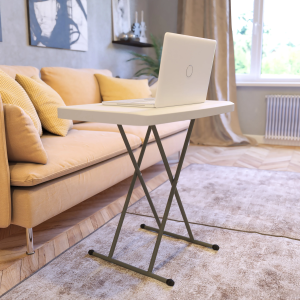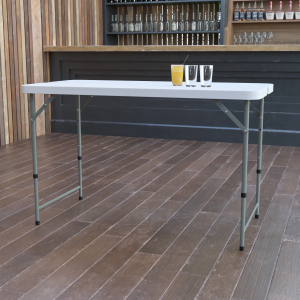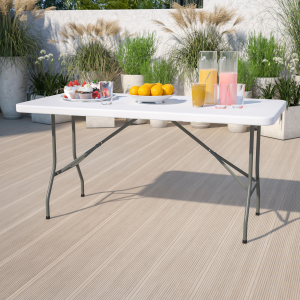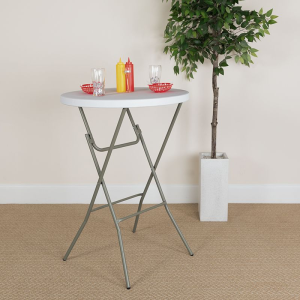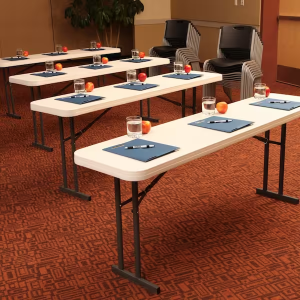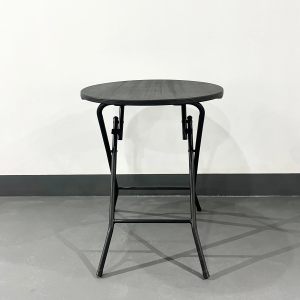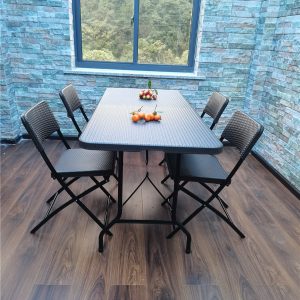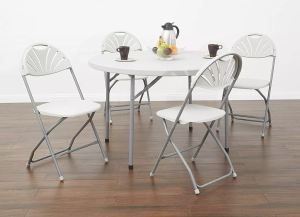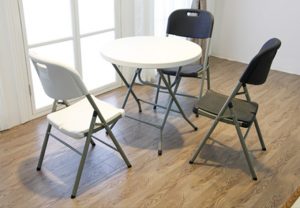More
Unveiling Reliability: The Locking Mechanism’s Role in Durability of Plastic Folding Tables
Unveiling Reliability: The Locking Mechanism’s Role in Durability of Plastic Folding Tables
Introduction
Plastic folding tables have become synonymous with convenience and versatility, serving as indispensable furniture in a multitude of settings. An often overlooked but critical component that ensures the durability and longevity of these tables is the locking mechanism. Beyond its role in stability, the locking mechanism plays a vital part in the table’s overall durability. In this blog post, we’ll delve into the significance of the locking mechanism in plastic folding tables, focusing on its contribution to reliable locking and the overall durability of these versatile furniture pieces.
-
Robust Locking for Longevity
A sturdy locking mechanism is at the heart of a durable plastic folding table. The locking mechanism’s ability to securely hold the table in place during use prevents wear and tear on the table’s hinges and joints. Reliable locking ensures that the table maintains its structural integrity over time, allowing it to withstand frequent opening and closing without degradation.
-
Withstanding Heavy Loads
Plastic folding tables are known for their ability to hold various loads, from laptops and books to heavy displays and equipment. The locking mechanism significantly contributes to the table’s load-bearing capacity. A reliable locking mechanism ensures that the table remains stable under heavy loads, preventing warping or bending of the table’s components.
-
Durability Against Regular Use
Daily use in different environments, such as offices, classrooms, event venues, and homes, can take a toll on furniture. The locking mechanism’s reliability ensures that the plastic folding table can endure the rigors of regular use. It prevents premature wear on the table’s joints and locking mechanisms, contributing to its longevity.
-
Commercial Applications
In commercial settings, where plastic folding tables often experience high traffic and rigorous use, a dependable locking mechanism is paramount. Whether used in restaurants, banquet halls, or trade shows, these tables must uphold their functionality and stability to meet the demands of various events. A robust locking mechanism ensures they do so without compromising their durability.
-
Preventing Accidental Damage
An integral aspect of the locking mechanism’s role in durability is its ability to prevent accidental damage. A secure lock prevents the table from collapsing unexpectedly, safeguarding both the table itself and any items placed on it. This prevention of accidents further extends the table’s lifespan.
-
Quality Materials and Engineering
Manufacturers who prioritize durability invest in quality materials and precision engineering for their locking mechanisms. High-quality materials, such as sturdy plastics or metals, combined with meticulous design and craftsmanship, ensure that the locking mechanism remains reliable even after prolonged use.
-
User Confidence in Durability
A well-designed and reliable locking mechanism fosters user confidence in the table’s durability. Users can trust that the table will remain stable and secure throughout its lifespan, allowing them to focus on their activities without worrying about potential failures or collapses.
Conclusion
The locking mechanism in plastic folding tables serves as a silent but essential guardian of their durability. Its role in providing reliable locking, load-bearing capacity, and prevention of accidental damage cannot be understated. A durable plastic folding table, with a well-engineered and robust locking mechanism, becomes a reliable asset in a wide range of settings. From classrooms to offices, events to homes, these tables stand the test of time, serving as versatile surfaces for various activities. By understanding the importance of the locking mechanism in enhancing the durability of plastic folding tables, users can make informed choices that lead to long-lasting and dependable furniture solutions.


